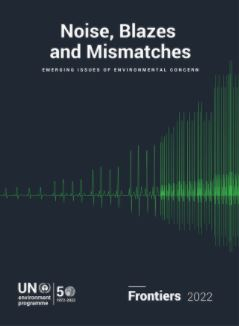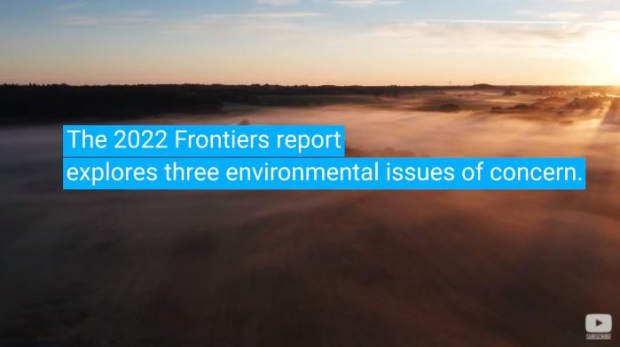Frontiers 2022: Noise, Blazes and Mismatches
Nairobi, 17 February 2022 - Wildfires are burning more severely and more often, urban noise pollution is growing into a global public health menace, and phenological mismatches – disruptions in the timing of life-cycle stages in natural systems – are causing ecological consequences. These critical environmental issues, requiring greater attention, are highlighted in the new Frontiers Report published today by the UN Environment Programme (UNEP).
“The Frontiers Report identifies and offers solutions to three environmental issues that merit attention and action from governments and the public at large,” said Inger Andersen, Executive Director of UNEP. “Urban noise pollution, wildfires and phenological shifts – the three topics of this Frontiers report – are issues that highlight the urgent need to address the triple planetary crisis of climate change, pollution and biodiversity loss.”
The latest edition of the Frontiers report, Noise, Blazes and Mismatches: Emerging Issues of Environmental Concern, is released days before the resumed fifth session of the UN Environment Assembly (UNEA):
What emerging issues are presented in the 2022 edition of the Frontiers report: Noise, Blazes and Mismatches?
- The chapter titled Listening to Cities: From Noisy Environments to Positive Soundscapes draws attention to noise pollution and its long-term physical and mental health impacts, along with measures that can be implemented to create positive and restorative soundscapes in urban areas.
- The chapter titled Wildfires Under Climate Change: A Burning Issue discusses the role of climate change and human influence in the changing wildfire regimes around the world, the impacts of wildfires on the environment and human health, and the measures that can help to prevent, respond and build resilience to wildfires.
- The chapter titled Phenology: Climate Change Is Shifting the Rhythm of Nature looks at how climate change is disrupting the life cycle patterns of plant and animal species, its consequences, and the need to address this issue by restoring ecological connectivity and biological diversity and most importantly, reducing greenhouse gas emissions.
Video:


Log in with your EU Login account to post or comment on the platform.